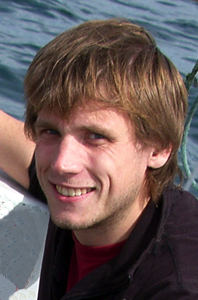
SCOTLAND’S first shark project officer is now at work. James Thorburn, a marine biologist who studied at Stirling and Heriot-Watt universities, has a strong track record of involvement in Scottish research projects.
His appointment, as part of a £52,000 support package from Scottish Natural Heritage and the Argyll and Islands LEADER programme, comes at a critical time in the campaign mounted by the Scottish Sea Anglers’ Conservation Network (SSACN) to build a database of scientific evidence to convince politicians to give greater protection to shark species of all kinds.
Last year SSACN launched the Scottish Shark Tagging Programme (SSTP). Thorburn, will take the lead role to:
- Record and analyse incoming data
- Increase public awareness
- Highlight the need for species protection
- Encourage codes of ‘best practice’
- Showcase conservation efforts
His work will also include arranging training workshops for anglers and raising awareness of Scottish sharks, skates and rays by liaising with fishermen, and visiting schools in Argyll.

Jane Dodd, SNH Marine Project Officer in Oban says the post calls for an unusual mix of skills in terms of project management, a passion for the sea and a willingness to undertake boat-based field work. Thorburn himself says:
“I have always been interested in the oceans; marine life fascinates and inspires me on a daily basis.
“This interest came through poking around in rock pools at the beach, fishing off the back of my dad’s boat and staring at the displays in sealife centres. When I was old enough I began to volunteer in marine based programmes such as seal monitoring around the Cumbrian coastline.”
His academic studies included an M.Sc on elasmobranchs. Thereafter he has been involved in a number of marine research programmes including: seal population monitoring in several UK sites, looking at population numbers and response to anthropogenic impacts; research into the impacts of electromagnetic fields upon benthic crustacean; whale, dolphin, seal and shark research in South Africa at the Centre for Dolphin Studies; and impacts of offshore windfarms on benthic populations.
He has already worked with SNH and Glasgow looking at ecological and economical features of the common skate population of Scotland’s west coast. This included field work on the local charter fishing boats to tag and measure animals, detailed analysis of over 30 years worth of data, collected by Glasgow Museums and local anglers, and the design and implementation of economic study into the value of the Common skate stock as a sport fishery.
That study was presented at the European Elasmobranch Association conference in Portugal as well as at several other conferences and meetings within Scotland to try and raise awareness of the project and the conservation issues facing the common skate population off the west coast of Scotland.
Thorburn adds: “Following this I had a brief break from research to join a documentary crew as a cameraman for a field trip to Argentina with the aim of highlighting marine conservation issues in rural communities after which I joined the Marine Wildlife Department of Gardline Environmental, advising clients and reporting on legislative protection for marine mammals and basking sharks during seismic operations.”
He is now seeking anglers’ views on what they would like to see from the tagging programme. You can mail him directly here.